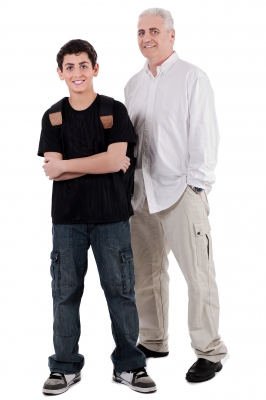
Image courtesy of photostock / FreeDigitalPhotos.net
Healing Family Relationships After Addiction
For teens who have had parents addicted to drugs or alcohol, life has been tough. Excessive drug and alcohol use make it hard for a parent to be fully present and available to their child. Addicted parents usually have good intentions; they love their teens and want to help their teens grow. Sadly, addiction gets in the way. For parents who have recently recovered from drug or alcohol dependence, family relationships after addiction can be tough. However, healing your relationship with your teen is not impossible.
What Now?
If you’re a parent who has struggled with addiction but is now recovering, you might wonder how your teen is supposed to heal too. Addiction never affects just one person—even though it can feel like one of the loneliest struggles in the world. You know addiction has affected your children. So, what comes next?
How to Heal Family Relationships After Addiction
There are four important steps involved in healing family relationships after addiction.
1. Make Sure You’re Committed
First, make sure you’re serious about staying sober. Also, make sure you are not replacing one form of coping with another. For example, don’t stop drinking just to start taking Xanax every night to get to sleep. For healing family relationships after addiction to work, you have to be completely honest with your family about your journey to recovery.
2. Be Patient
Even if a parent has really turned their life around, their teen might not trust them right away. After years of covering for missed events or doing things like driving a parent home from a party, these teens have learned to rely on themselves. They’ve taken on adult roles too early, and that kind of self-protection doesn’t disappear right away. It takes time to heal family relationships after addiction, but it will happen.
3. Be Understanding
Third, I’ve seen that with honesty and consistency, most teens who’ve experienced this do let their parents back in. It takes time, and it isn’t easy. However, deep down, they’ve always wanted you to be their safe place. Unfortunately, now that you can be, they’re cautious. Be patient and kind. Own your past mistakes, don’t be afraid to apologize, and ask how they’re feeling. But make sure you don’t tell them how you think they should feel. When working on healing family relationships after addiction, you can’t tell your teen how to feel. Instead, try to understand their feelings and thoughts.
4. Expect Some Rebellious Behavior
There will be times when it feels like your teen is trying to recreate a chaotic relationship—maybe they’re acting out or even using substances. Likely, they’ll be rude, condescending, and rebellious. That’s because they’re used to crisis; it’s what feels normal. It takes time to unlearn that. Give them a structured life that makes chaos harder to create, but expect them to test the limits for a while. This doesn’t mean this behavior is okay; you still have to discipline your teen for acting like this. Just be prepared in case it happens. Besides, once they stop acting like this, they’ll actually be glad to stop having so much conflict.
Healing Family Relationships After Addiction with Love
Most of all, remember your child loves you, and you love them too. Express this often, and stay humble. With time and loving care from you, your relationships will heal.
Helping teens grow and families improve connection,



